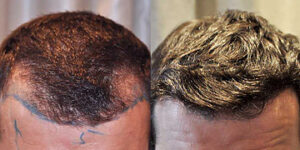Nearly 2 million fatalities a year are attributed to liver disease, many of which are avoidable. The liver is similar to the body’s dustbin when it isn’t working properly and the liver cells can’t execute their functions, according to transplant hepatologist Christina Lindenmeyer, MD.
“The liver and kidney work together to remove various toxins from the body’s blood, which filters blood from the body, the belly, and the legs before returning to the heart. Therefore, the liver cannot eliminate these poisons if it isn’t functioning properly. These poisons may accumulate and cause disorientation.”
Signs Your Liver Isn’t Strong
1. Obesity and Liver Damage
Doctors caution that a person’s weight or obesity is closely associated with liver problems. According to Wynne Armand, MD, losing just 5% of your body weight may be sufficient to reduce liver fat and improve abnormal liver test results.
Losing between 7% and 10% of one’s body weight appears to lessen liver cell inflammation and damage, and it may even undo some of the harm caused by fibrosis. Aim for a weekly weight reduction of 1 to 2 pounds, since fast weight loss may exacerbate fibrosis and inflammation. If you aren’t losing weight and your health is deteriorating, you might wish to discuss weight loss surgery with your doctor.
2. Toxic Supplements
According to specialists, several over-the-counter medicines and supplements might harm the liver. Check your list of prescription drugs, herbal remedies, and dietary supplements for liver toxicity by using this LiverTox, advises Dr. Armand.
Even acetaminophen, the active component in Tylenol and several cold medications, can be hazardous if used in excess or for an extended period of time, particularly if you have liver problems or consume a lot of alcohol.
3. Drinking Too Much Alcohol
Doctors caution that excessive alcohol use can seriously harm the liver. According to Julio Gutierrez, MD, alcohol use is the primary cause of cirrhosis, thus refraining from drinking or at least cutting back on consumption might be helpful.
“We advise males to restrict their alcohol consumption to two drinks per day, and women to one. There doesn’t seem to be a safe quantity of alcohol to consume if you are overweight.”
4. Fatty Liver Disease
According to specialists, fatty liver disease is the main cause of liver disease and a clear indication that your liver is stressed. According to Craig Lammert, MD, an attending gastroenterologist and hepatologist at IU Health as well as an assistant professor of medicine at the Indiana University School of Medicine.
“Obesity, diabetes, high blood pressure, and high cholesterol are all known major risk factors for the development of fatty liver disease.” “The worrying aspect of this is that anywhere between 15 and 50 percent of the population might have excessive liver fat. But we can’t always predict who that will be.”
5. Jaundice and Dark Urine
Changes in bowel habits and jaundice should be examined with a doctor as soon as possible since they may indicate liver damage. Jaundice, dark urine or light-colored bowel movements, loss of appetite, exhaustion, blood-vomiting, bloody or black bowel movements, swelling or pain in the abdomen, [and] odd weight fluctuations are all symptoms that point to liver disease.

